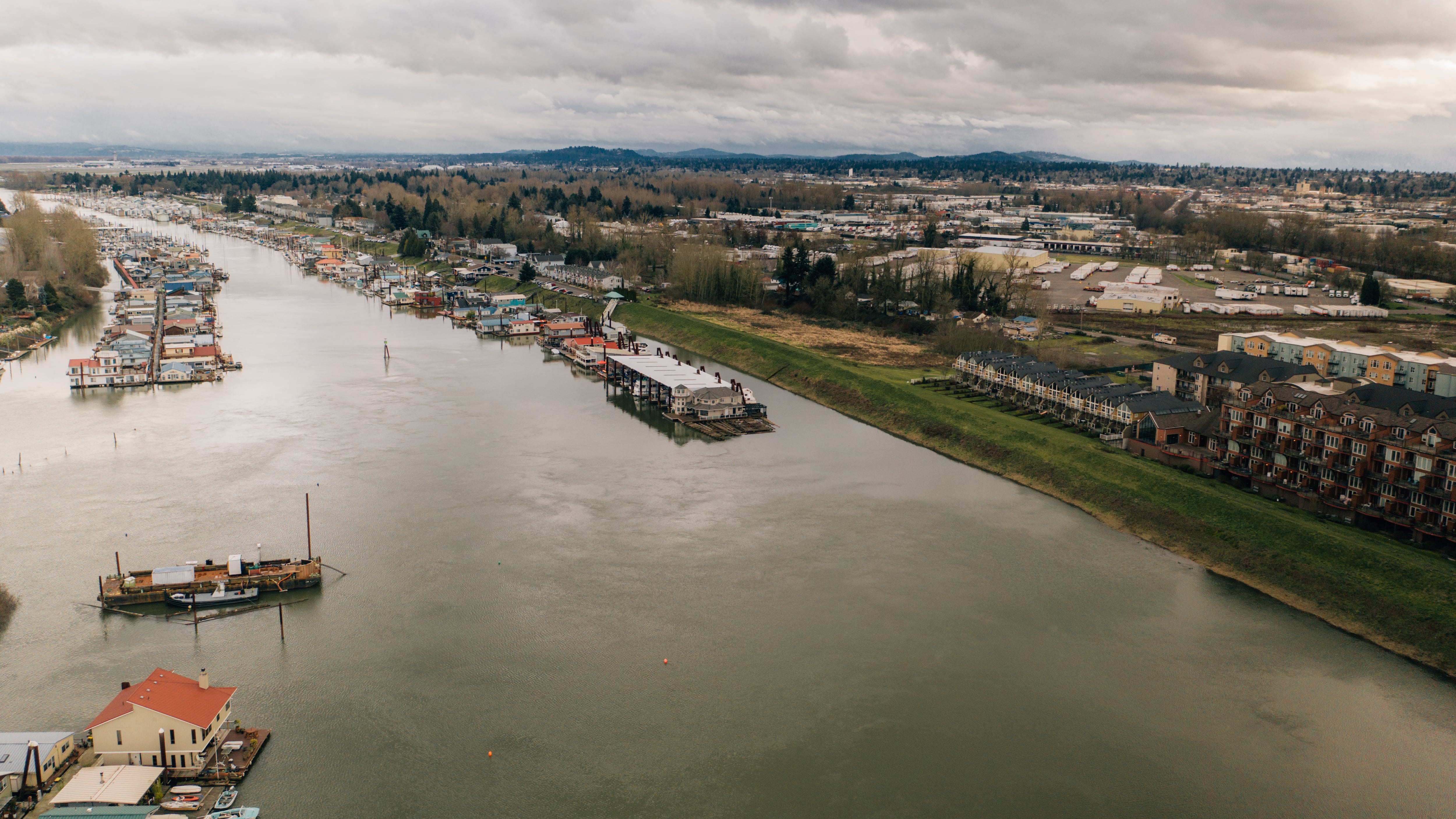Late last year, at the close of a series of high-profile meetings Gov. Tina Kotek convened with Portland business leaders, she called for a three-year moratorium on all new taxes.
It was a response to Portlanders’ backlash to what’s become the second-highest marginal tax rate in the nation. While more of a recommendation than a directive, local elected officials appeared to take Kotek’s tax holiday seriously: Governments and elected officials that had thrown around potential tax measures began to rethink their political calculus.
Meanwhile, an often forgotten government body that governs and maintains the levees along the Columbia River tugged on Kotek’s sleeve, asking: What about us?
That agency is the Urban Flood Safety & Water Quality District, which is governed by a 17-member board and was convened in 2019 by the Oregon Legislature to figure out a funding mechanism by the spring of 2025 to strengthen the levees along the Columbia River.
While the project sounds like a snooze fest, the plan was a critical one: In the wake of the devastation caused by Hurricane Katrina in 2005, the federal government updated its standards for all federal levees to ensure no other city was destroyed by flooding (“Holding Back the Flood,” WW, Feb. 12, 2020).
Over the past decade, the feds came to an agreement with Oregon elected officials and the district. Congress agreed the U.S. Army Corps of Engineers would provide $100 million for the Columbia River levees if the district presented a funding plan to the feds by April 2025. Oregon’s congressional delegation as well as Kotek, then speaker of the Oregon House of Representatives, were critical to those discussions.
The district felt it had a rock-solid plan by last year: ask voters for a $195 million bond in 2024 and then, once the bond passed, get $100 million in funding from the feds.
And then Kotek called for the three-year tax moratorium in December, throwing the district’s plans into chaos.
During a Dec. 14 meeting of the water quality district’s board, executive director Jim Middaugh explained the pickle the governor had found herself in.
“At some point what the [Portland Metro Chamber] and the governor are looking for is a really good reason they can stand before the public after their announcement and say, this needs to happen anyway,” Middaugh said. “That’s what we’re looking for.”
Corky Collier, a district board member and the executive director of the Columbia Corridor Association, put it similarly: “It’s hard to pull us aside and say, we’re special, we’re more important than all these other needs. That’s really, really difficult.”
For weeks, Middaugh, the Portland Metro Chamber, and top staffers to Kotek have talked at length about how to bring the bond to voters without the governor and the chamber looking like hypocrites.
Middaugh says they’ve come to an agreement: reduce the bond measure to $150 million, do their best to convince the Oregon Legislature to pony up around $45 million over a span of 10 years for the project, and find a way to delay issuance of the bonds to honor the moratorium.
The district’s 17-member board will vote whether to send the negotiated $150 million bond—or another version of it—to the May ballot this Wednesday, Feb. 7.
“In our negotiations, we reached an agreement between all parties,” he says. “I remain hopeful that the compromise will be adopted with broad support.”
Still, the governor’s office stopped short of telling WW that Kotek intends to support the bond. Her office says she’ll declare a position once the measure is referred to the ballot by the district’s board Feb. 7.
“The governor understands the importance of protecting the county from flooding,” spokeswoman Elisabeth Shepard says. “Her office has participated in discussions with drainage district leaders and the business community to see how the state can be supportive in the project’s success.”
There are two very good reasons why officials have to act now, rather than waiting until Kotek’s tax holiday expires.
First, if the district fails to come up with a funding plan by the spring of 2025, the region loses the federal funding. Second, if the district cannot fund the levee improvements, those levees could lose accreditation, forcing surrounding property owners—which include businesses critical to the city’s economy, such as the Port of Portland and Pacific Power, not to mention thousands of homeowners—to purchase flood insurance, which is exorbitantly pricey.
Much of the public seems at least persuadable. Polling commissioned by the district in September 2023 found that 60% of those surveyed said they’d vote for the measure; 31% of respondents said they’d vote no. In its memo, the polling firm characterized this result as “very soft support,” adding that it’s a “clear indication of the need for a strong, positive campaign to support the measure.”
Whether such a robust campaign is launched may depend on where the Portland Metro Chamber falls on the matter. The chamber won’t seek an endorsement from its board until the district’s board votes to send the measure to the May ballot on Wednesday.
If two-thirds of the chamber’s board votes to endorse the measure, the chamber would help with campaigning. If less than two-thirds votes to support the measure, the chamber promised the district and the governor’s office that it would remain neutral.
Chamber leaders sent a briefing on the situation to its board members Tuesday morning, noting that its government relations committee negotiated the deal “knowing that no other proposed tax will check all of these unique boxes,” and adding that it “recommends that the chamber board adopt a firm position of active opposition to any further new or increased taxes.”

